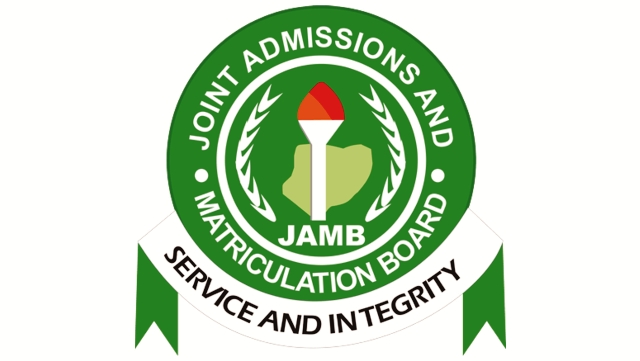News
Why PH, Other Cities Experience High Cost Of Food -FCCPC
The Federal Competition and Consumer Protection Commission (FCCPC) has blamed the distribution sector, including wholesalers and retailers, for the spike in the prices of foodstuffs and other commodities in Port Harcourt, and some other cities in the country.
The South-South Zonal Coordinator of FCCPC, Uchegbu Chukwuma, disclosed this shortly after taking newsmen on a survey of the popular Oil Mill Market in Port Harcourt.
Chukwuma said that the commission’s position followed market inquiries in some states within the zone, saying that its surveillance efforts suggest participants in the food chain and distribution sector such as wholesalers and retailers are allegedly engaged in conspiracy, price gouging, hoarding, and other unfair practices to restrict competition in the market.
He further said such illicit acts restrict the supply of food and manipulate and indiscriminately inflate the price of food, pointing out that such practices, which he termed “obnoxious, unscrupulous, and exploitative,” are illegal under the FCCPA.
The Commission, Chukwuma said, has been engaging in fact-finding interactions with traders’ associations and marketers to ascertain the factors responsible for the continuous hike in food prices.
The South-South Zonal Coordinator of the FCCPC said that the fact-finding inquiry was an investigative mission to gather information directly from the sources and stakeholders in major markets, particularly executives, market unions, sellers, and consumers.
Chukwuma added that the commission’s priority remains to unlock the markets and address key consumer protection and competition issues affecting the prices of commodities in the food sector.
He stated, “FCCPC’s surveillance efforts suggest participants in the food chain and distribution sector, including wholesalers and retailers, are allegedly engaged in conspiracy, price gouging, hoarding and other unfair tactics to restrict or distort competition in the market, restrict the supply of food, manipulate and inflate the price of food indiscriminately.
“These obnoxious, unscrupulous, exploitative practices are illegal under the FCCPA.
“Following this exercise, the commission would develop a concise report of its inquiry and make recommendations to the government in line with Section 17(b) of the FCCPA and initiate broad-based policies and review economic activities in Nigeria to identify and address anti-competitive, anti-consumer protection, and restrictive practices to make markets more competitive while also ensuring fair pricing for consumers.
“As part of our mandate as enshrined in FCCPA section 17B, part of what we do is to advise the Federal Government on policies, especially economic policies, so what we are doing today is what we call a market survey to find out what has been causing this continuous price increase of goods and services in the market places.”
Chukwuma added, “We know that recently the dollar went up and also drove the price of goods and services in the marketplace, but the government in its wisdom has done everything it can to reduce the rate of dollars against naira, but we have not seen a commensurate reduction in the price of goods and services.
“People are saying that whenever prices go up it cannot come down again, but we are asking what drove the cost of goods and services and what is sustaining it, so that is why we have decided to take this exercise with the market leaders, the sellers, and also the buyers.
“So when we collate this information we are gathering we use it to advise the government on policies and what to do because the total essence of government is for welfare and the security of the citizens.
“So I know that this current government is a government that listens if sound arguments and policies are presented. I am sure that they will be willing to buy into it so that our consumers will smile again.
“We have found out that there is a lot of money that people pay from point of purchase. Almost all the people we spoke with said the same from Benue State to this place. Each truck coming here pays not less than N250,000 as illegal fees enroute their respective destinations.”
The Tide learnt that some traders in the market expressed their plight, saying the cost of transportation and multiple checkpoints by policemen, who demand tips on the road are responsible for the price hike.
News
Let’s Approach Regional Development Issues Differently – Fubara …As S’South Govs Host Fubara To 50th Birthday Celebration

Rivers State Governor, Sir Siminalayi Fubara, has sued for a change in the current approach adopted by South South Governors in their pursuit to achieve holistic regional development and economic prosperity.
The governor insisted on de-emphasis in vested individuals’ political interests while looking at the bigger picture of achieving enduring regional integration that will strengthen unity of purpose to change the trajectory of development in the region.
Fubara made the appeal during the meeting of Governors of South-South States, under the auspices of BRACED Commission, at the Bayelsa State Government House in Yanagoa on Tuesday.
This was contained in a statement by the Chief Press Secretary to the Governor, Nelson Chukwudi.
BRACED is an acronym for Bayelsa, Rivers, Akwa Ibom, Cross River, Edo and Delta.
He said: “I want to appeal that if we have to succeed in this drive, we need to keep our political differences aside and understand that the struggle, as at today, is for posterity, for the development of our region.
“It is really sad that in Niger Delta that is the economic base of this country, the construction of a road that you tagged ‘East-West Road’ could be an issue, that we need to beg, protest, and complain to get it fixed. I don’t think it is proper.”
Governor Fubara stated that it is not that the federal authorities do not understand that Niger Delta needs the road but quickly added that they have seen that even the people of the region do not take themselves seriously.
The governor said the moment Niger Delta people stopped playing to the gallery, and place value on themselves, outsiders will have no option than to accord the region and its people due regard.
Fubara said: “On my part, I want to say this: This is not the first time we are meeting. For me, I followed the course of the region meeting in a forum that we tagged “BRACED Commission.”
“BRACED Commission is also one of the bodies that was constituted at that time to support and work out development strategies for this region. But what I am seeing today is just limiting this meeting to only BRACED COMMISSION.
“We need to widen the scope where other leaders of the region should be part of the discussion of the development of the region, and I think this is the direction that will help the region.”
Reading the Communique of the meeting, the new Chairman of the Forum of Governors of South-South States, and Governor of Bayelsa State, Senator Douye Diri, said they support the Federal Government Tax Reform Bills, and urged President Bola Tinubu to extend the Value Added Tax (VAT) sharing percentages to oil and gas derivation.
He stated the Forum’s request to the Federal Government to urge relevant stakeholders and agencies to extend remediation of polluted environment ongoing in Ogoni land to other impacted communities and States in the region.
Governor Diri also said that the Forum resolved to establish a structural regional security network to enhance safety and security, foster stable Niger Delta region conducive for economic growth and prosperity.
Highlight of the event was the hosting of Governor Fubara to a surprise 50th Birthday celebration by the Governors of South-South States at the Government House in Yenagoa.
News
Fubara Lauds Tinubu For Setting Up Education Load Fund … Vows To Ensure Rivers Benefit Maximally From Scheme

The Rivers State Government has applauded President Ahmed Bola Tinubu for conceiving the idea of setting up the Nigeria Education Loan Fund (NELFUND) which has opened up opportunities for youths to acquire tertiary education irrespective of their financial status.
Rivers State Governor, Sir Siminalayi Fubara, gave the commendation while playing host to a delegation from NELFUND who came on an advocacy visit to the Government House in Port Harcourt on Tuesday.
Represented by his deputy, Prof. Ngozi Nma Odu, Governor Fubara said in developed countries it is common for people to go through school with loans which they sometimes pay all throughout their lives, noting that “for us, it is more accessible and more friendly because you would be required to pay back the loan two years after your National Youth Service.
“It is a win-win situation; it is a situation where the youths in Nigeria should not say because my parents are poor or passed away I cannot improve on my educational growth. This offers them a golden opportunity and I am glad you came for this advocacy.”
The governor urged NELFUND to intensify its advocacy to let the people know how they can benefit from it, adding that it is more important when talking about vocational institutions.
“If you look at the developed countries it is people that went to the vocational schools that make so much money, because it is pricey to get somebody to do anything, we need to instil this into our people, our youths, because people sometimes tend to look down on people that went to vocational schools, it should not be,” he said.
Fubara expressed delight with the NELFUND programme and assured that the State Government would do whatever it can to ensure Rivers State benefits maximally from the scheme.
In his remarks, the Managing Director and Chief Executive of NELFUND, Dr. Akintunde Sawyer, informed the governor that they were in Rivers State to seek the support of the State Government towards the loan, stressing that President Tinubu has directed them to ensure no Nigerian student who has the ability and desire to get educated at tertiary level is denied the opportunity due to lack of funding.
He explained that the scheme provides interest-free loans to students who apply, adding that these loans are not repayable until two years after their Youth Service when they must have gotten a job.
News
UK Appoints British-Nigerian As Trade Envoy To Nigeria

A British-Nigerian politician, Florence Eshalomi, has been appointed as the United Kingdom’s trade envoy to Nigeria.
Her appointment makes Eshalomi the second Nigerian to hold the position.
Confirming her appointment on X on Tuesday, she wrote: “It is an honour to have been appointed as the United Kingdom’s Trade Envoy to Nigeria.
“I’m looking forward to building on my close ties with Nigeria to promote a strong and flourishing economic relationship between our two great nations.
“I am looking forward to strengthening the UK’s relationship with Nigeria to explore shared growth and opportunities for both countries.”
Announcing the appointment in a statement on Tuesday, Jonathan Reynolds, the UK’s Business and Trade Secretary, said the decision was aimed at attracting investment into the UK and boosting economic growth.
“I’ve launched a new team of trade envoys who will use their experience, expertise, and knowledge to unlock new markets around the world for British businesses, attract investment into the UK, and ultimately drive economic growth,” Reynolds said.
Eshalomi, 44, is an MP representing the Vauxhall and Camberwell Green constituency.
She holds a Bachelor of Arts (Hons) in Political and International Studies with Law from Middlesex University.
-
Rivers3 days ago
CSOs Seek Restraint On Planned Oil Extraction Resumption In Ogoni
-

 Featured1 day ago
Featured1 day agoI Won’t Allow Spoils Of Office To Change Me – Fubara …As Rivers People Mark Gov’s 50th Birthday With Prayers
-
Business23 hours ago
Nigeria Losing $40b Annually From Maritime Sector – NIMENA
-

 News3 days ago
News3 days agoJAMB Introduces Mock UTME For Underage Candidates
-
Business1 day ago
Expert identifies UNICEEF’s NLP As Spring Board To AI In Benue
-

 Niger Delta24 hours ago
Niger Delta24 hours agoCommissioner Hails RSHA Speaker Over Promise Of Constituency Projects To Ogu/Bolo
-
Rivers3 days ago
Bonny Protest Neglect, Seeks CSR MoU Implementation
-
Politics1 day ago
Presidency, APC React As El-Rufai Criticises Party, Urges United Opposition

